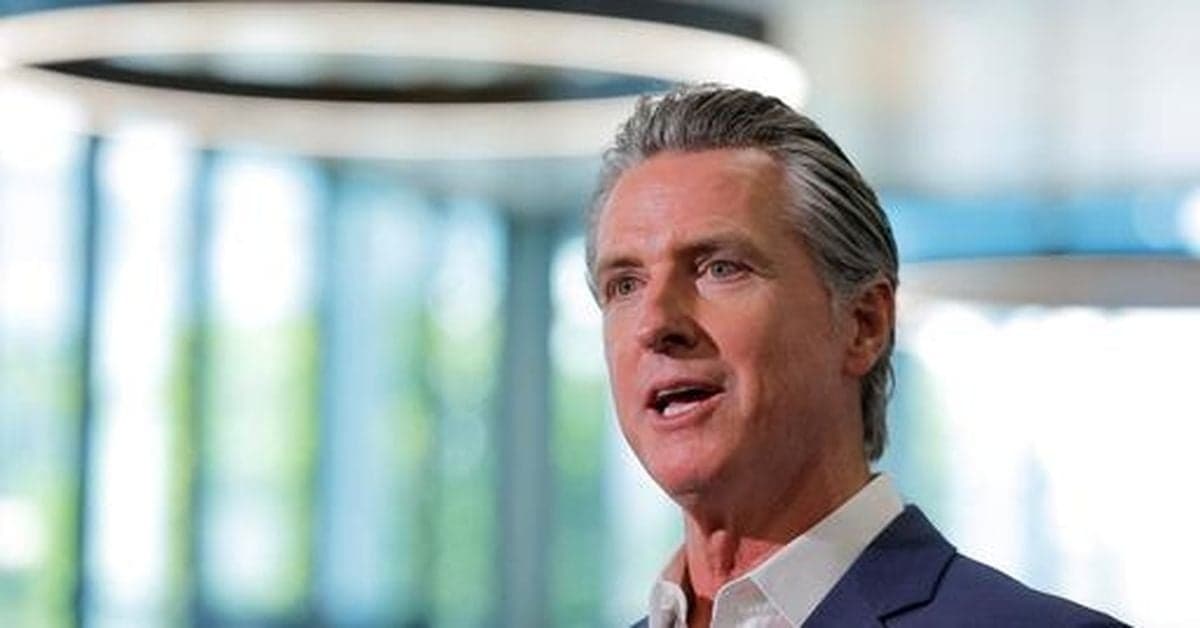We're loading the full news article for you. This includes the article content, images, author information, and related articles.
California Governor Gavin Newsom's potential presidential run could reshape U.S.-Kenya relations, with significant implications for trade, climate action, and technology investment in East Africa.

NAIROBI – California Governor Gavin Newsom, a prominent figure in the U.S. Democratic Party, confirmed in an interview on Sunday, October 26, 2025, that he is considering a run for the U.S. presidency in 2028. The announcement, made to CBS News, signals the start of a long political trajectory but carries immediate weight for strategic partners like Kenya, given California's global economic influence and Newsom's distinct policy priorities.
Newsom stated he would seriously consider a White House bid after the 2026 midterm elections. His term as governor is set to conclude in January 2027 due to term limits, freeing him to pursue national office. While a formal decision is years away, his potential candidacy invites early analysis of how a Newsom-led administration might alter U.S. foreign policy, particularly towards Africa.
The United States and Kenya share a deep strategic partnership, established in 2018, built on five pillars: economic prosperity, defense, democracy, public health, and regional issues. A shift in the White House, especially to a candidate from a state with an economy larger than most countries, could significantly recalibrate these priorities.
Under Governor Newsom, California has pursued an aggressive, sub-national foreign policy, particularly on climate change. In September 2025, Newsom and Kenyan President William Ruto signed the California–Africa Climate and Economic Partnership in New York. This Memorandum of Understanding, a first between California and an African nation, focuses on collaboration in sustainable transport, renewable energy, green infrastructure, and climate-smart agriculture. A key outcome is the planned establishment of Africa's first Centre of Excellence on Clean Transport Systems in Nairobi. A Newsom presidency could elevate such climate-focused, partnership-based initiatives to the federal level, potentially increasing U.S. investment in Kenya's green transition.
California's economy, with a GDP of approximately $3.9 trillion, ranks as the fourth or fifth largest in the world, making its economic ties to Kenya significant. In 2024, California's exports to Kenya were valued at $38 million, led by computer and electronic products. Total U.S.-Kenya trade reached over $1.5 billion the same year. A president with deep roots in California's tech and agricultural sectors could champion trade policies beneficial to Kenya's growing digital economy and key exports.
The Democratic Party's foreign policy has traditionally emphasized multilateralism and development aid, contrasting with the more transactional approach of Republican administrations. A Newsom administration would likely continue robust support for programs like the U.S. President's Emergency Plan for AIDS Relief (PEPFAR) and USAID, which are cornerstones of the U.S.-Kenya public health partnership. The ongoing negotiations for a U.S.-Kenya strategic trade and investment partnership, initiated to succeed the African Growth and Opportunity Act (AGOA), would also be a key file for a new administration.
Newsom has cultivated a national profile as a leading critic of former President Donald Trump and his political allies. The input for this story included a reference to a dispute between Newsom and Sean Duffy, who has been serving as the Secretary of Transportation in the Trump administration since January 2025. This rivalry highlights the deep partisan divisions in American politics and underscores the stark policy differences a Democratic president like Newsom would have compared to his predecessors. These differences extend to foreign policy, where Democratic administrations often place a greater emphasis on democracy, governance, and human rights in their bilateral relationships.
The Kenyan diaspora in the U.S. is a growing and influential community, with a significant population of approximately 8,100 residing in California. This community is an active participant in both the U.S. economy and its civic life, representing a key constituency with vested interests in the U.S.-Kenya relationship.
While the 2028 election remains distant, Governor Newsom's early signal is a critical development. For Kenya and the East Africa region, his potential candidacy represents the possibility of a U.S. partner whose priorities on climate, technology, and international cooperation are closely aligned with the continent's own development aspirations. Stakeholders in Nairobi will be watching his next moves closely.
Keep the conversation in one place—threads here stay linked to the story and in the forums.
Sign in to start a discussion
Start a conversation about this story and keep it linked here.
Other hot threads
E-sports and Gaming Community in Kenya
Active 9 months ago
The Role of Technology in Modern Agriculture (AgriTech)
Active 9 months ago
Popular Recreational Activities Across Counties
Active 9 months ago
Investing in Youth Sports Development Programs
Active 9 months ago